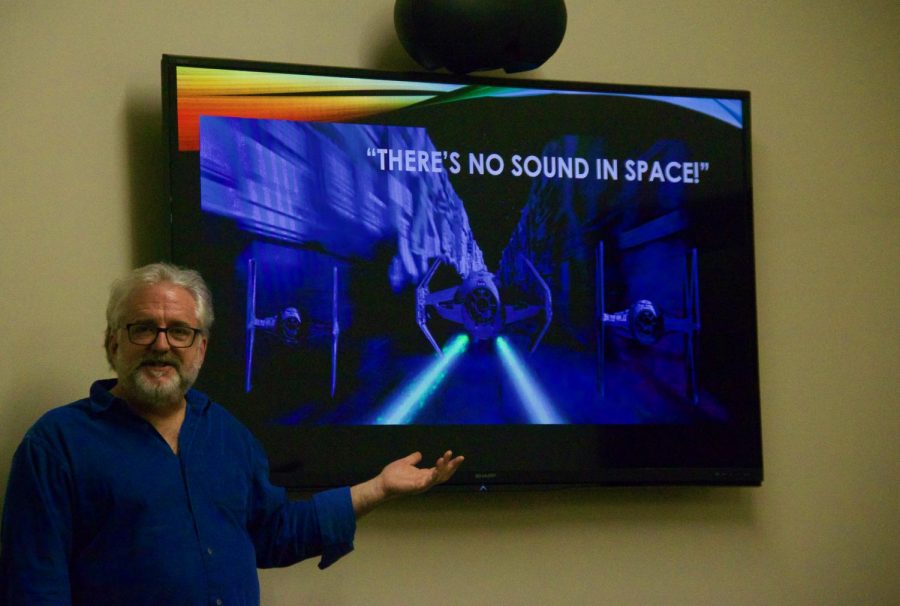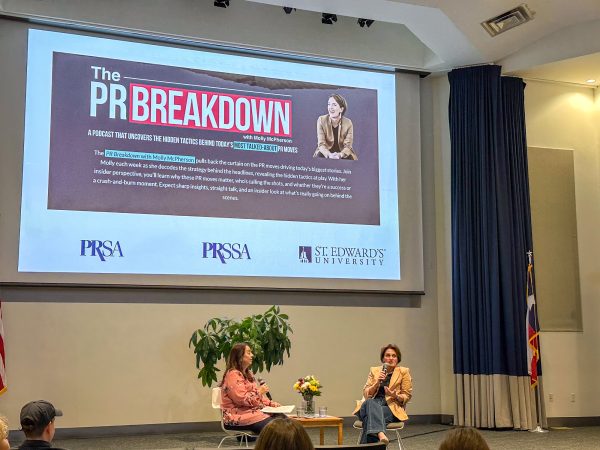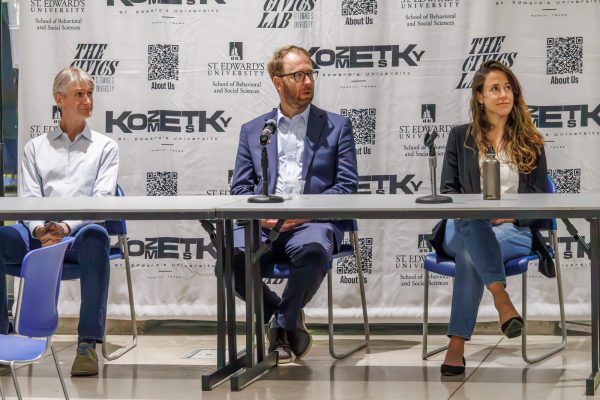SciPops event reveals behind the scenes look at science fiction
Professor Bryant shared his love of science fiction with the audience at the first SciPops event of the semester. The event took place at Munday Library on Feb 5.
Star Wars is one of the most popular science fiction franchises in the world. It takes place in a galaxy far far away; it has lightsabers and actual wars in space. However, it’s all fun and entertaining until you realize that there is no sound in space. This is just one of the realizations one would learn from attending Robert Denton Bryant’s SciPop Talks, where Bryant talks about the mixing of science and pop culture.
On Feb. 5, Bryant, who is also the head of the Video Game Development Department at St. Edward’s, sat down with a few students to talk about the relationship between sci-fi classics many love and the real science behind them.
Bryant’s main objective was to discuss the difference between what makes certain sci-fi good or bad while also discussing the thought and consideration that goes into making good sci-fi.
The talk began with Bryant going into detail about the birth of science fiction, which dates all the way back to 1818 when Mary Shelley wrote “Frankenstein.” Bryant even talked about movies in pop culture such as “Star Wars” and “Planet of the Apes,” where the world inside the movie created its own scientific world around them.
The discussion took a turn when Bryant claimed that as important as the science in science fiction is, sci-fi as a genre is supposed to be about entertaining and making the audience feel something while also respecting science.
“The audience wants to be entertained, moved, and maybe at the bottom of the list is to be educated,” Bryant said.
Sophomore Lilly Dazet found the talk very interesting.
“I never really thought about the science that goes into sci-fi. So this talk was really cool to actually take time to see what sci-fi is and what makes some sci-fi good or bad,” Dazet said.
When discussing what good sci-fi would include, Bryant told his audience how it’s all about taking science seriously and being able to get the audience to feel something. Bryant even gave an example of two movies that perfectly follow these sci-fi rules: “Oceans 11” and “Star Wars.”
These two movies, in Bryant’s opinion, are the perfect example of ideal sci-fi. They both take the science involved in them, subtle or not, that help the story and keep the audience engaged.
“Sci-fi should be more concerned on impact and not accuracy,” Bryant said.
Bryant also took time to recommend shows to his audience, such as “Avenue 5” and “Alter Carbon” that, in his opinion, are considered good sci-fi in pop culture today.
Bryant left the talk with a message to those who want to try and make their mark in the world of science fiction.
“Make the magic happen,” Bryant said, “so we are able to go and tell more interesting stories that can touch the lives of others.”









